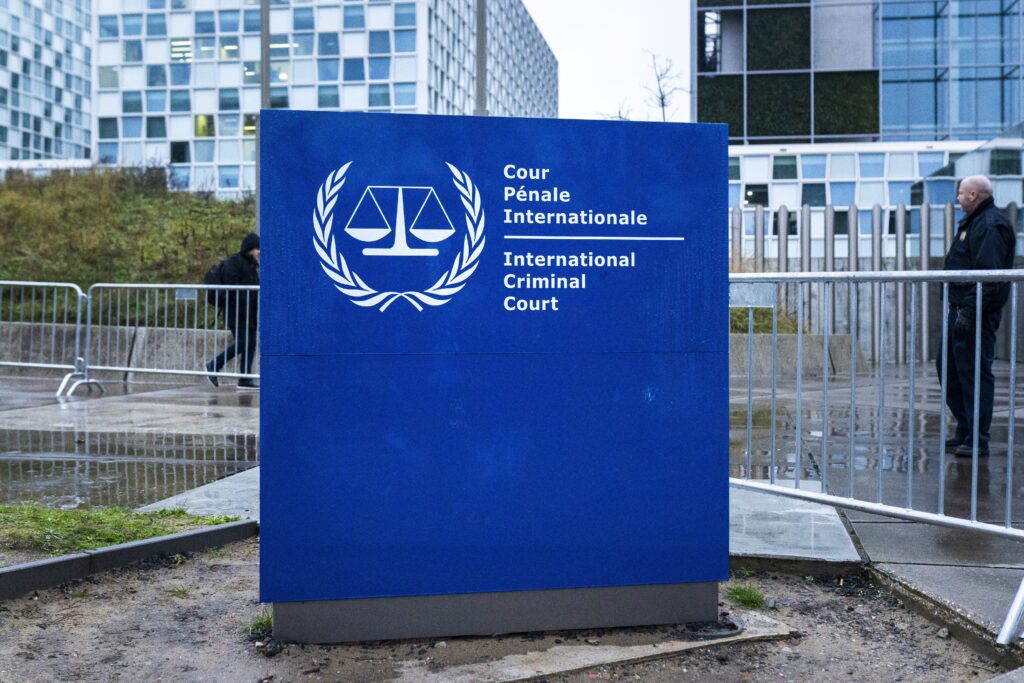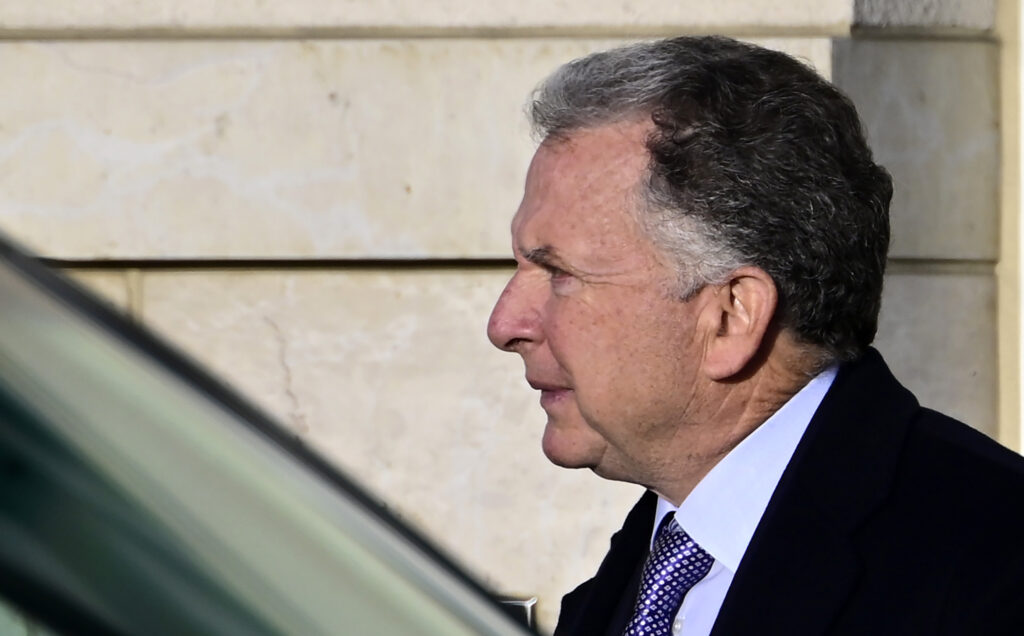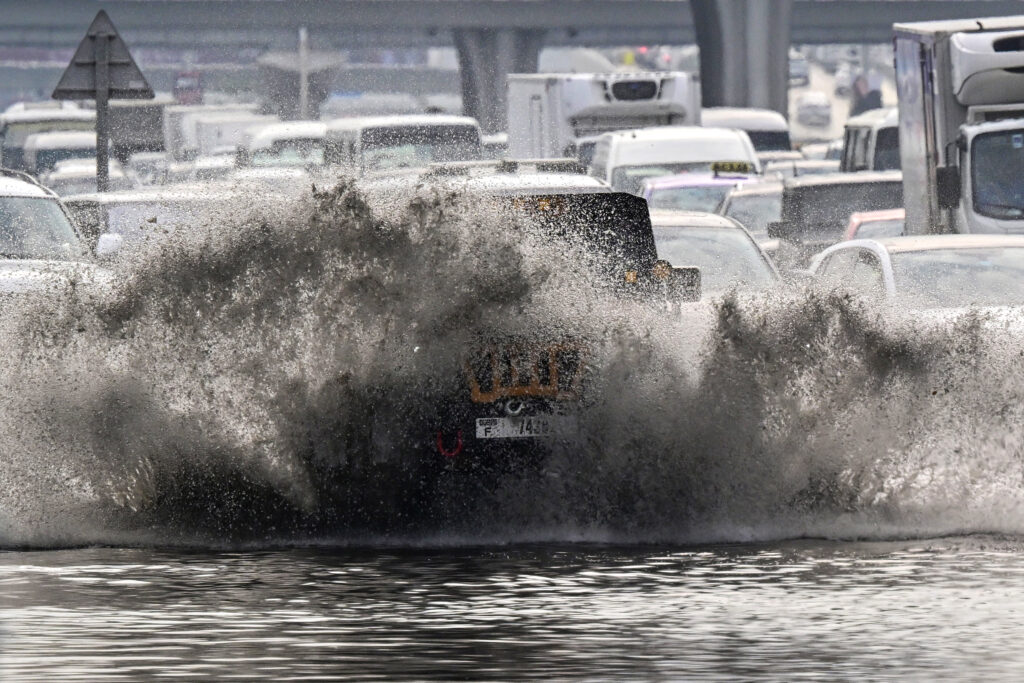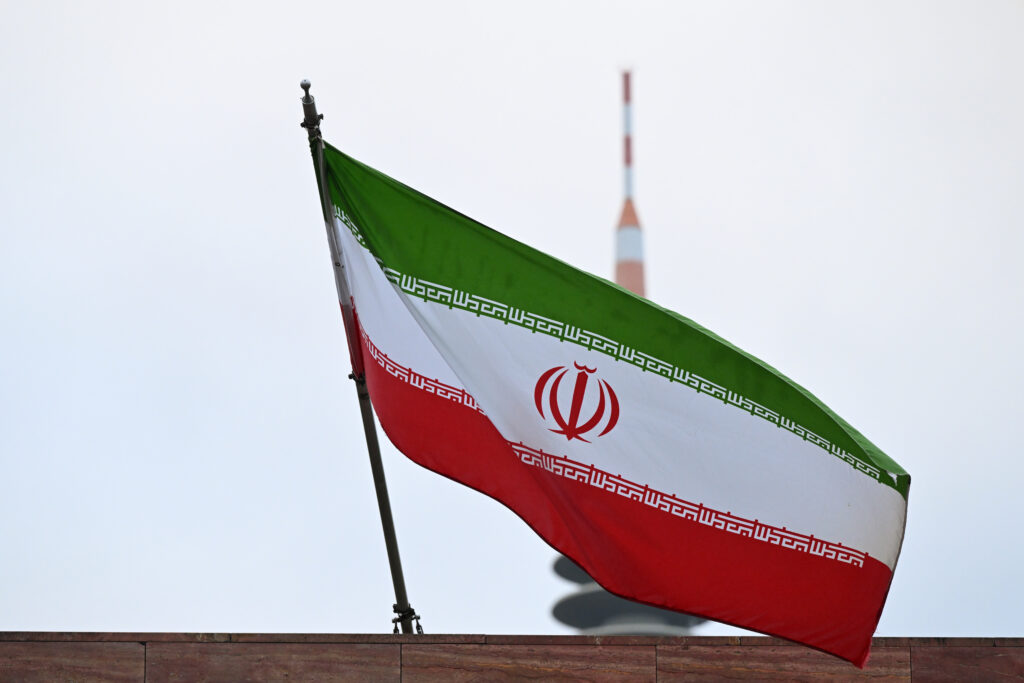AFP Asia Business
US imposes sanctions on two more ICC judges for Israel probe
The United States on Thursday imposed sanctions on two more judges of the International Criminal Court after they rejected an attempt by Israel to end a war crimes probe in Gaza.Secretary of State Marco Rubio, who had already ordered sanctions on judges and prosecutors in the case, explicitly linked the new measures to a vote Monday in which the two judges sided with the majority and upheld arrest warrants for Israeli Prime Minister Benjamin Netanyahu and former defense minister Yoav Gallant.”We will not tolerate ICC abuses of power that violate the sovereignty of the United States and Israel and wrongly subject US and Israeli persons to the ICC’s jurisdiction,” Rubio said in a statement.”We will continue to respond with significant and tangible consequences to the ICC’s lawfare and overreach,” he wrote.It brings the number of ICC judges sanctioned by the Trump administration to at least eight, along with at least three prosecutors including chief prosecutor Karim Khan.The Hague-based ICC responded that it “strongly rejects” the fresh sanctions.The measures are “a flagrant attack against the independence of an impartial judicial institution,” the ICC said in a statement.Israel praised the US move. “Thank you, Secretary Rubio, for this moral clear stance,” Israeli Foreign Minister Gideon Saar wrote on X.The judges newly slapped with sanctions were Gocha Lordkipanidze, formerly Georgia’s justice minister, and Erdenebalsuren Damdin of Mongolia.The sanctions ban the judges from entering the United States and block property or financial transactions with them in the world’s largest economy.Lordkipanidze was formerly an adjunct professor at Columbia University in New York.Monday’s 44-page ruling upheld the decision to investigate alleged war crimes committed by Israel in Gaza.Netanyahu and Gallant both face accusations of war crimes and crimes against humanity in the relentless Israeli offensive in the Palestinian territory launched after the October 7, 2023 attack by Hamas.The latest action puts the United States in league with Russia, which last week sentenced ICC judges and prosecutor Khan in absentia.The ICC had also issued an arrest warrant for Russian President Vladmir Putin related to the invasion of Ukraine.The United States, Israel and Russia are among the countries that reject the ICC, which is backed by nearly all Western democracies.The ICC was set up in 2002 as a court of last resort when countries do not have adequate legal systems to ensure accountability.During Trump’s first term, the United States also took action against the top ICC prosecutor in a successful attempt to block an investigation into alleged abuses during the US-led war in Afghanistan.Former president Joe Biden’s administration lifted the sanctions and sought limited cooperation with the court, especially over Ukraine.
US hosting new Gaza talks to push next phase of deal
The United States will host talks in Miami on Friday to push the next phase of the Gaza ceasefire, as President Donald Trump said Israeli Prime Minister Benjamin Netanyahu would likely visit him at the close of the year.Trump’s roving special envoy Steve Witkoff is to meet senior officials from Qatar, Egypt and Turkey in Florida, a White House official told AFP Thursday, amid fears that efforts to reach the second stage of the deal are stalling.Under the second stage, Israel is supposed to withdraw from its positions in Gaza, an interim authority is to govern the Palestinian territory instead of Hamas, and an international stabilization force is to be deployed.But progress in moving to that phase of October’s agreement between Israel and Hamas, which was brokered by Washington and its regional allies, has so far been slow.The ceasefire also remains fragile with both sides alleging violations, and mediators fearing that Israel and Hamas alike are stalling.Israel said it had struck and killed the head of weapons production in Hamas’s military wing in the Gaza Strip last weekend, a move that reportedly sparked Trump to warn of jeopardizing the truce.Trump said Netanyahu would “probably come to see me in Florida,” where the US president will be staying over the Christmas holidays at his Mar-a-Lago resort.”He would like to see me. We haven’t set it up formally, but he’d like to see me,” Trump told reporters in the Oval Office when asked about a report by the Axios news site that Netanyahu was expected to visit on December 29.- ‘Justice is served’ -Trump said in a televised address to the nation on Wednesday that the Gaza truce had brought peace to the Middle East “for the first time in 3,000 years.”In the first phase of the Gaza deal, Palestinian militants committed to releasing the remaining 48 living and dead captives held in the territory. So far, they have released all of the hostages except for one body.But the Trump administration is now keen to proceed to the difficult second stage, with the provision for Hamas to lay down its weapons being a particular sticking point.Hamas’s Gaza chief Khalil al-Hayya said Sunday that the militant group had a “legitimate right” to hold weapons. Israel has repeatedly insisted Hamas “will be disarmed.”The third phase includes the reconstruction of the vast areas of Gaza levelled by Israel’s retaliatory military campaign for Hamas’s October 2023 attack on Israel.Turkey said Foreign Minister Hakan Fidan would represent Ankara at the talks with Witkoff. “Turkey will continue to fight determinedly on every front to ensure that what is happening in Gaza is not forgotten, that justice is served,” Turkish President Recep Tayyip Erdogan said during a speech on Wednesday.Witkoff and Trump’s son-in-law Jared Kushner played a key role in the shuttle diplomacy that led to the deal to end the Gaza war.The US pair are also involved in talks to end Russia’s invasion of Ukraine, and will meet Russian officials in Miami over the weekend.
Dubai warns residents to stay indoors because of rain
Dubai police on Thursday urged residents to stay indoors unless it was “absolutely necessary” as heavy rainfall was expected in the desert country which saw record downpours last year.The warning came hours after rainfall in the Emirati city caused flooding in streets.”For your safety, please remain cautious as unstable weather conditions are expected in the coming hours, and avoid going out unless it is absolutely necessary until midday on Friday,” said a police alert sent to residents’ phones.The National Center of Meteorology (NCM) in the United Arab Emirates warned of rainfall across the country from Thursday to Friday, including in Dubai and the capital Abu Dhabi.Other Gulf states also experienced heavy rain on Thursday, including Saudi Arabia and Qatar where the downpour caused an Arab Cup match to be cancelled.Last year in April, record rains lashed the UAE, flooding homes and transforming streets into rivers.The downpour, worsened by a lack of storm drains, hobbled Dubai airport, the world’s busiest hub for international passengers.The UAE’s heaviest since records began 76 years ago, the stormy weather killed at least four people, including three Filipino workers and one Emirati.A study published by the World Weather Attribution (WWA) group found that global warming caused by fossil fuel emissions “most likely” exacerbated the intense rains that lashed the UAE and Oman last year.
US imposes sanctions on two more ICC judges for Israel probe
The United States on Thursday imposed sanctions on two more judges of the International Criminal Court after they rejected a challenge by Israel which sought to end a war crimes probe in Gaza.Secretary of State Marco Rubio, who had already ordered sanctions on judges and prosecutors in the case, explicitly linked the new sanctions to a vote Monday in which the judges sided with the majority and upheld arrest warrants for Israeli Prime Minister Benjamin Netanyahu and former defense minister Yoav Gallant.”We will not tolerate ICC abuses of power that violate the sovereignty of the United States and Israel and wrongly subject US and Israeli persons to the ICC’s jurisdiction,” Rubio said in a statement.”We will continue to respond with significant and tangible consequences to the ICC’s lawfare and overreach,” he wrote.It brings the number of ICC judges sanctioned by the Trump administration to at least eight, along with at least three prosecutors including chief prosecutor Karim Khan.The Hague-based ICC responded that it “strongly rejects” the fresh sanctions.The measures are “a flagrant attack against the independence of an impartial judicial institution,” the ICC said in a statement.The judges newly slapped with sanctions were Gocha Lordkipanidze, formerly Georgia’s justice minister, and Erdenebalsuren Damdin of Mongolia.The sanctions ban the judges from entering the United States and block property or financial transactions with them in the world’s largest economy.Lordkipanidze was formerly an adjunct professor at Columbia University in New York.Monday’s 44-page ruling upheld the decision to investigate alleged war crimes committed by Israel in Gaza.Netanyahu and Gallant both face accusations of war crimes and crimes against humanity in the relentless Israeli offensive in the Palestinian territory launched after the October 7, 2023 attack by Hamas.Neither the United States nor Israel are parties to the ICC, which was set up in 2022 as a court of last resort when countries do not have adequate legal systems to ensure accountability.Virtually all other Western democracies support the ICC.
US, Qatar, Turkey, Egypt to hold Gaza talks in Miami
US President Donald Trump’s special envoy Steve Witkoff will hold talks with senior officials from Qatar, Egypt and Turkey in Miami on Friday on the next phase of the Gaza ceasefire deal, a White House official told AFP.Under the second stage, Israel is supposed to withdraw from its positions in Gaza, an interim authority is to govern the Palestinian territory instead of Hamas, and an international stabilization force is to be deployed.But progress has so far been slow in moving to the following phase of October’s agreement between Israel and Hamas, which was brokered by Washington and its regional allies.Turkey said Foreign Minister Hakan Fidan would attend the talks. Qatari Prime Minister Mohammed bin Abdul Rahman al-Thani and Egyptian Foreign Minister Badr Abdelatty would also be there, the Axios news outlet reported.”Turkey will continue to fight determinedly on every front to ensure that what is happening in Gaza is not forgotten, that justice is served,” Turkish President Recep Tayyip Erdogan said during a speech on Wednesday.Israeli Prime Minister Benjamin Netanyahu is expected to meet Trump at his Mar-a-Lago resort in Florida on December 29, Axios said, as the US president pushes for a longer-term deal.Trump said in a televised address to the nation on Wednesday that the Gaza truce had brought peace to the Middle East “for the first time in 3,000 years.”But the ceasefire remains fragile with both sides alleging violations, and mediators fearing that Israel and Hamas alike are playing for time.Israel said it had struck and killed the head of weapons production in Hamas’s military wing in the Gaza Strip last weekend, a move that reportedly sparked Trump to warn of jeopardizing the truce.Witkoff and Trump’s son-in-law Jared Kushner played a key role in the shuttle diplomacy that led to the deal to end the Gaza war, which was sparked by Hamas’s October 2023 attack on Israel.The US pair are also involved in talks to end Russia’s invasion of Ukraine, and will meet Russian officials in Miami over the weekend.
Have Iran’s authorities given up on the mandatory hijab?
Women swaying to dance music at a DJ set, strolling without headscarves through cutting-edge art exhibitions and in coffee shops showing off trendy styles that could have come from the streets of Europe.Until recently, such scenes would have been unthinkable in the Islamic Republic of Iran, whose strict dress code for women has required they wear the hijab in public since shortly after the 1979 revolution that ousted the pro-Western shah.But while casually flouting the rule has become increasingly common, Iran’s leadership insists the hijab is a legal obligation and is implementing a crackdown that has seen dissident figures who oppose the mandatory headscarf detained.The tension has come at a critical moment for the clerical establishment, still recovering from the recent 12-day war with Israel and with supreme leader Ayatollah Ali Khamenei now 86.The 2022-2023 nationwide protests, sparked by the custody death of Mahsa Amini who was arrested over alleged improper hijab, are still a recent memory.Analysts and activists say authorities in recent months have indeed slackened off on imposing the mandatory hijab in daily life, but are far from abandoning an ideological pillar of the Islamic republic, warning a new wave of repression to re-impose it could come at any time. Roya Boroumand, cofounder and executive director of the US-based Abdorrahman Boroumand Center for Human Rights in Iran, said it was “heartwarming” to see images of women without the headscarf, calling it the result of social pressure from below rather than “a reform granted from above”.”What we see today is unquestionably the result of years of persistent civil disobedience by Iranian women and girls who have fought to carve out and defend a small space of freedom in public life,” she told AFP.Women sporting braids, curls and even bleach-blond locks have now become common sights in public, while more traditional women wear the hijab or chador.The trend, which has grown more visible in recent months in Tehran and other major cities, now extends to all generations to varying degrees. Some women are also sporting tighter clothing and outfits that expose their shoulders, legs and midriffs, much to the dismay of conservatives who decry such “nudity” in public.- Hard to ‘put the genie back’ -Boroumand said enforcement of the mandatory hijab varied across the country and that authorities were still closing down businesses deemed to have failed to enforce the rule.Authorities earlier this month arrested two people who organised a marathon event on Iran’s Gulf island of Kish, viral images of which showed dozens of women running bareheaded through the streets. They also shut down a cafe that served as the start and finish point.Arash Azizi, a postdoctoral associate and lecturer at Yale University, told AFP that “the regime has given up on harshly enforcing mandatory hijab but it has not at all given up on it as a principle yet”.”It would be a grand ideological concession that it is not prepared to make. We still see places closed down and even people fined and arrested due to lax hijab. But the regime knows that it will be very difficult to put the genie back in the bottle.”Other recent incidents have also gone viral on social media: the grand opening of a mall in Tehran, for instance, saw young people dancing and swinging their arms to a DJ’s beats.And a match this month in Iran’s second football division was unusual not just for the presence of women — albeit in a segregated area of the stadium — but for the fact that many were bareheaded, brandishing scarves of the home team.Even the office of Khamenei, in power since 1989, came under fire last month from some ultraconservatives after it published in its newspaper a photo of Iranian woman Niloufar Ghalehvand, a pilates instructor killed during the Israeli attacks, wearing a baseball cap rather than hijab.A design week exhibition at Tehran University saw bareheaded women mingling freely amid boldly experimental art exhibits. But it closed down early after objections from clerics in a sign of the authorities’ readiness to hit back.- ‘Very real risk’ -Hardline judiciary chief Gholamhossein Mohseni Ejei recently warned of a new crackdown, saying that intelligence agencies had been instructed to identify and report “organised currents promoting immorality and non-veiling”, adding authorities would take action against those involved.Khamenei on December 3 defended the hijab in an address, saying Iranian women who respect Islamic dress “can progress more than others in all areas and play an active role both in society and in her home”.Nobel Peace Prize winner Narges Mohammadi, who had steadfastly refused to wear the hijab in public since her release from prison on medical grounds in December 2024, was arrested on December 12 along with dozens of other activists at a memorial ceremony for a lawyer who was found dead earlier this month.”There is a very real risk of a renewed and harsher crackdown,” said Boroumand.Campaigners warn that while the images of coffee shops and concerts can give the impression of freedom, repression has been cranked up in recent months in the wake of the war against Israel.The arrest of Mohammadi was just the latest of a prominent dissident figure. There have also been more than 1,400 executions so far this year — hundreds more than in 2024 — and groups including the Bahai, Iran’s biggest non-Muslim religious minority, are experiencing increased persecution.”We are seeing an escalation of repression elsewhere, not a trade-off,” said Bouroumand. The mandatory hijab has been key to Iran’s Islamic system and a response to what the authorities have traditionally termed “Gharbzadegi”, or the “West-toxification” of Iran under the shah.But the issue is a subject of division within the political establishment inside Iran, with less-hardline figures such as President Masoud Pezeshkian maintaining that women cannot be forced to wear the hijab.”Khamenei insists on it but the future leadership of the regime, after he passes, will likely have to formalise what’s already de-facto and give up on mandatory hijab,” Azizi said.




